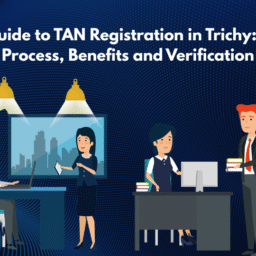
What Happens If You Don’t File Your ITR on Time?
Filing your Income Tax Return (ITR) may feel like a chore, but skipping it can cost you far more than just time. Whether you’re a salaried employee, business owner, or freelancer, filing your ITR is not just a legal obligation — it’s a vital part of your financial record.
Let’s break down everything you need to know: from penalties for late or missed filing, to how to correct errors, and why timely ITR filing matters.
What is ITR and Why Is It Important?
An Income Tax Return (ITR) is a summary of your income, tax liability, deductions, and taxes paid during a financial year. It helps the government assess how much tax you owe and acts as proof of your income — crucial for getting loans, visas, or financial aid.
As per the Income Tax Act, 1961, if your income exceeds the basic exemption limit, it’s mandatory to file ITR.
Penalties for Not Filing ITR
Here’s what happens if you don’t file your ITR:
1. LATE FILING PENALTY (SECTION 234F):
- ₹5,000 if filed after due date but before December 31
- ₹10,000 if filed after December 31
- Only ₹1,000 if your income is below ₹5 lakh
2. INTEREST ON OUTSTANDING TAX (SECTION 234A)
- Interest of 1% per month on due tax until payment is made
- This applies even if you’ve missed filing by just a few days
3. NO REFUNDS WITHOUT FILING
If you’re eligible for a refund and don’t file your return, you lose your refund — no return, no refund.
4. LEGAL NOTICES OR PROSECUTION
Continued non-compliance can invite legal action from the Income Tax Department.
5. INELIGIBILITY TO CARRY FORWARD LOSSES
Capital or business losses can’t be carried forward unless you file ITR on time. That could lead to significant tax loss in future years.
Other Consequences of Not Filing ITR
LOAN AND VISA ISSUES
Banks, NBFCs, and consulates ask for ITR copies to assess your creditworthiness or financial stability.
NO RECORD FOR CREDITWORTHINESS
Not filing ITR consistently can impact your financial credibility, making it harder to access services like credit cards, mortgages, etc.
What If You Missed the Deadline?
FILE A BELATED RETURN (SECTION 139(4))
You can still file your ITR after the due date (before December 31) by paying the applicable penalty.
FILE A CONDONATION OF DELAY REQUEST
If you missed filing for previous years due to valid reasons (like medical issues, etc.), you can request the tax department to allow late filing.
How to Avoid Penalties?
Here are a few simple tips:
- Mark the ITR due date: Usually July 31 for individuals
- Choose the correct ITR form
- Declare all sources of income: Salary, rent, capital gains, bank interest, etc.
- Pay your tax dues on time
- Double-check your ITR before submission
- Use online calculators or consult a tax expert to avoid errors
Can I Correct a Mistake in ITR?
Yes! You can file a Revised Return under Section 139(5) if you made errors in your original ITR — like entering the wrong income or claiming incorrect deductions. Just ensure it’s done before March 31 of the relevant assessment year.
Common Mistakes to Avoid
- Filing the wrong ITR form
- Misreporting or under-reporting income
- Missing interest income from banks
- Wrong deduction claims
- Not reconciling TDS with Form 26AS
Final Thoughts: Why Filing ITR on Time is Non-Negotiable
Timely ITR filing isn’t just about avoiding penalties — it’s about staying financially responsible. From loan approvals and visa applications to claiming tax refunds and setting off losses, ITRs play a crucial role.
If you’re confused about where to start, consider reaching out to tax professionals or platforms like Vakilsearch, where experts can guide you in filing your ITR correctly and on time.
Remember:
An ITR is a document filed with the Income Tax Department that shows your total income, tax paid, and deductions claimed for a financial year. It’s mandatory if your income exceeds the basic exemption limit.
₹5,000 if filed after the due date but before December 31
₹10,000 if filed after December 31
₹1,000 if your income is less than ₹5 lakh



